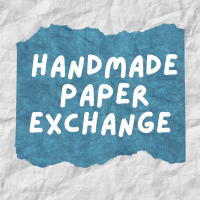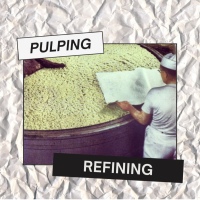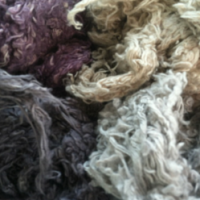Hollander Beaters-Helping Papermakers Since the 1600s
One way that fibers are made more flexible before papermaking is a refining process called beating. Pounding and/or shearing action works to separate the fibers for the first time, or further refines fibers that have already been separated by fermentation or cooking in alkaline solutions. The process can increase the strength of the product through flattening of the cellulosic fibers which will increase the area for fiber bonding. Beating is an almost universal part of papermaking traditions. Hollander beaters are machines used for beating. Hollanders were initially wind-powered machines developed between 1660 and 1673. They machines have a large tub that is oval in shape and is made of various materials including cast iron, stainless steel, concrete, fiberglass, or wood. The tub might also be lined with tiles, copper, or another rust free material.

Hollander Beater Diagram (courtesy of the Forest Products Society
The fibers added to the beater will circle in the tub around a division called the midfeather. On one side of the tub is the beater roll, a rotating cylinder mounted on a shaft with dull blades or bars attached at an angle. When the fibers pass under the blades on their path of circulation, they rub between the blades of the beater roll and another stationary set of blades on the base of the tub called the bedplate. This is where refining takes place. The gap between the blades and the bedplate is adjusted to control the amount of shearing.

A Hollander Beater is a good place for a bath – just don’t turn it on!
In an industrial setting, beaters use a lot of energy and space and are seen as inefficient compared to other machines designed to process pulp. For the small batch papermaker, the artist, for specialty paper makers and for laboratory applications, the small beater is still relevant. Several variations of the Hollander design exist. You can purchase an old one and refurbish it or purchase a newly made one from one of these producers:
Critter Beaters
Designed by Mark Lander
email: lander-gallery3@xtra.co.nz
David Reina Designs Inc.
tel. 718-486-0262
fax. 718-599-7857
79 Guernsey St. Brooklyn NY, 11222
email: reinadesigns@aol.com
Oracle Beater and Hydra Hollander
Designed by Lee Scott McDonald
tel. 1-617-242-2505
fax. 617-242-8825
email: info@toolsforpaper.com
AVP-LLC
used paper mill equipment
http://www.avpllc.info/used-equipment/
CAN-AM Machinery, Inc.
used paper mill equipment
tel. 978-343-4400
fax. 978-343-3809
44 Old Princeton Road
Fitchburg, MA, 01420
http://www.canaminc.com
Another useful resource is Catherine Nash’s downloadable PDF:
Beater Finesse: 32 Beater Notes from 25 International Artists – A Comparative Study A 50 page e-booklet including 50 color images with a chart (printable on a large format printer). Beater Finesse “is a compilation intended to guide and inspire us in our experimentations within our own studios, rather than to be used as a recipe book. As all Hollander beaters are different, getting to know your own machine and its capabilities is the foundation from which your new work will spring.”





Dear sirs
This is Miguel Galiano from Giardino del Peru company. Our company is developing COMPLETE projects to be offers to Universities in Peru, we have sold some complete projects in 2017. We are developing now a new peoject, and we think you have all we need. Our project is THE ISNTALATION A COMPLETE LABORATORY PAPER PLANT for universties, we need all necessary equipment and instrumental to achieve our proposal. We need your support in the design of our project from the reception of the raw material until the paper obtention. Please send me a mail indicating what equiment is necessary for each operation in the process. We need also all necessary instrumentation fro QQ. We are waiting for your news
Thanks
LikeLike
Hello!
I’m wondering where you found that image of the men taking a bath in a beater! Do you have any other information about where/when it was taken? Thanks!
~Mitch
LikeLike
Hello, Mitch! This photo was taken at the State University of New York College of Environmental Science and Forestry. They have a paper program there. The photo itself is a group of students from the 1940s who called themselves ‘the beater rats.’ They had parties in the pilot plant, including one time where they filled the beater with water and put a couple of ducks in it! The picture is still widely circulated in the department which is where I saw it when I attended school there. 🙂
LikeLike